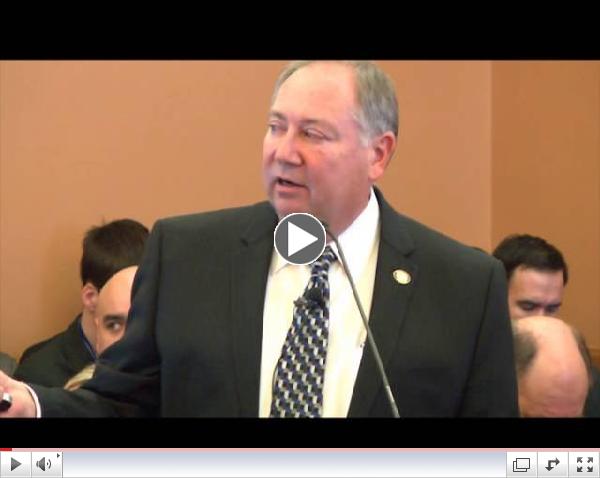
Medical debt will remain a problem and will increase to catastrophic levels under ObamaCare. A major driver of unmanaged medical debt is the lack of health care cost transparency. We have all received the surprise medical bill thirty days after we have received medical services. High deductible plans and high co- insurance plans are now dominating both the private sector plans and the Obama Exchange Plans. The need for Health Care Transparency is the most important business issue for private practices, hospitals, and of course the patients.Senate Bill 251 addresses this issue head on.
Chairman of the Senate Insurance Committee, Rob Olson, formed a special sub committee to study SB251. The goal is to bring Industry and patients together to reach a compromise on the bill which will work for all parties. The special subcommittee will meet Thursday February 6th at 3:30pm. The Chairman understands the significance of SB251. It will affect 1/6 of the Kansas economy. We have to get it right. Senator Jeff Longbine is chairing the committee.
Health care cost transparency is long overdue. I mentioned Senate Bill 251 in last week's newsletter. SB 251 is known at the Real Time Explanation of Health Care Benefits bill, (Real Time-EOB).
Click here for the full text of the bill. This bill would allow computers in doctor's office to query the payment database computers at the insurance company's office to get an accurate estimate of patients out of pocket costs in real time. The objective is to let patients know their estimated out of pocket costs for non-emergency services before they are consumed. This bill will allow patients to make informed decisions with their physicians about their health care and make educated decisions with reliable cost information in hand.
I presented testimony to the Senate Insurance Committee last week. The video below is my testimony and examples I used to explain the need and solution to achieving health care cost transparency in Kansas.
 |
| Senator Jim Denning Speaking on S.B. 251 |
Click here for a PDF on "Understanding Patient Out of Pocket Expenses" from an EOB.
This one bill will have a positive effect on 1/6 of the Kansas economy and give patients some certainty with their out of pocket costs.
The above example is a very typical scenario. Do note that the patient was responsible for 80% of the Allowable amount, or 4 times the amount the insurance company paid. It should also be noted that patients co-insurance percentage rage from 10% to 40%. Deductibles are now as high as $5,000.
You can help support this effort to improve health care cost transparency. Send your personal experience with getting a surprise health care bill or just let me know that your support the need for SB 251. Send your comments to jim@jimdenning4kansas.com and I will compile the results for the sub-committee.